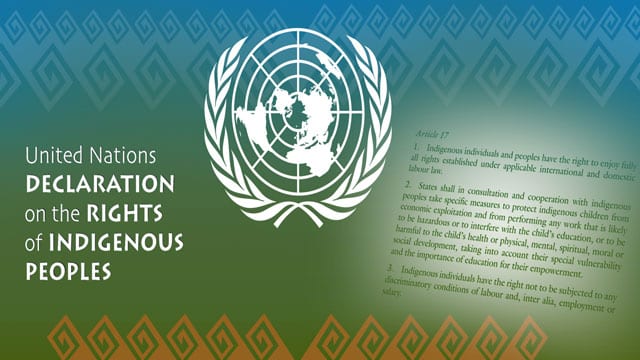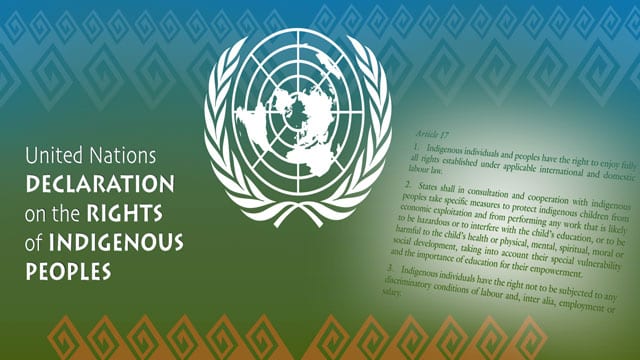
Correction: The original story said that the B.C. UNDRIP law received royal assent on Wednesday.
APTN News
Legislation in British Columbia that mandates the provincial government to bring its laws into line with the United Nations Declaration on the Rights of Indigenous Peoples (UNDRIP) will receive royal assent at a ceremony Thursday.
The Green caucus announced on Tuesday night that the bill passed unanimously in the house.
B.C. is now the first jurisdiction in Canada to make the UNDRIP law in Canada.
“Social justice and respect of diversity are more than core principles for the B.C. Greens, they are values that every British Columbian can embrace,” said Green Leader Andrew Weaver in a statement issued Tuesday. “And, today, MLAs stood united in support of those core values.”
Weaver says the passage of the bill was a foundational piece of the Greens’ confidence and supply agreement to support a NDP minority government.
Green member of the legislature Adam Olsen, from the Tsartlip First Nation, says the passage marks a significant milestone on the path to reconciliation.
Some First Nation leaders say there is still work to do despite the passing of the bill.
“In the declaration it says that Indigenous peoples have the right to define and decide who represents us,” Kirby Muldoe, First Nations coordinator for Skeena Wild Conservation Trust told APTN News.
“And that’s what has to be defined immediately or somebody else will define it for us.”
Wet’suwet’en Hereditary Chief Na’moks is worried that the provincial government will only listen to one half of a community’s governance system.
“It gives weight to elected, which is they get to say who is authorized which is a slippery slope because government only recognizes the entity they created,” said Na’moks.
“Devil is in the details and their interpretation.”
After the legislation passed, the government and Union of British Columbia Indian Chiefs issued a release stating that any changes in provincial policy must be done in “consultation and collaboration.”
“This legislation advances a path forward to true reconciliation for all of us in B.C. that will uphold Indigenous rights and create stronger communities, stable jobs and economic growth,” said the joint statement.
“It is time we recognize and safeguard Indigenous peoples’ human rights, so that we may finally move away from conflict, drawn-out court cases and uncertainty, and move forward with collaboration and respect. Ensuring that Indigenous peoples are part of the policy-making and decision-making processes that affect them, their families and their territories is how we will create more certainty and opportunity for Indigenous peoples, B.C. businesses, communities and families everywhere.”
With files from the Canadian Press










